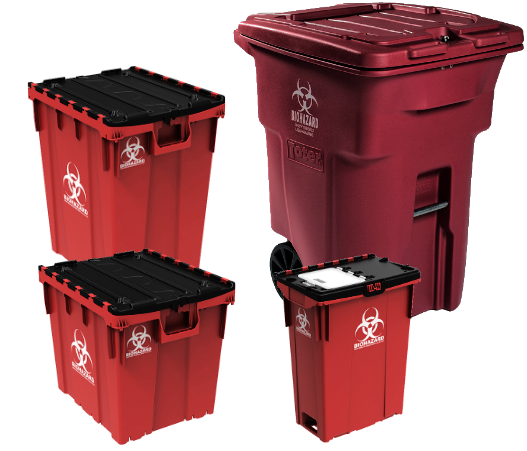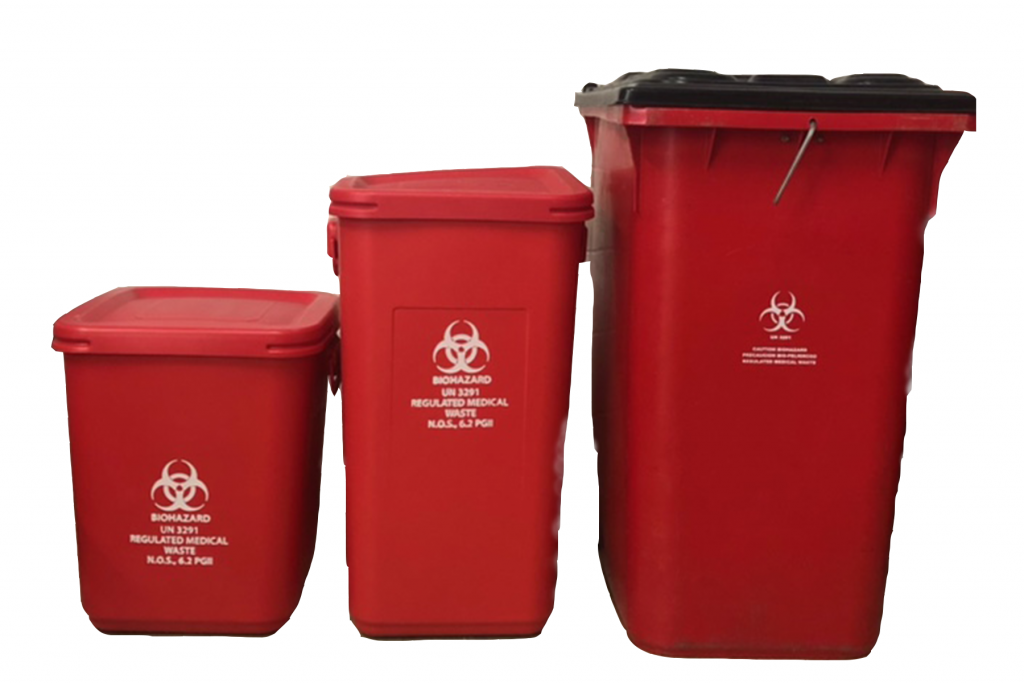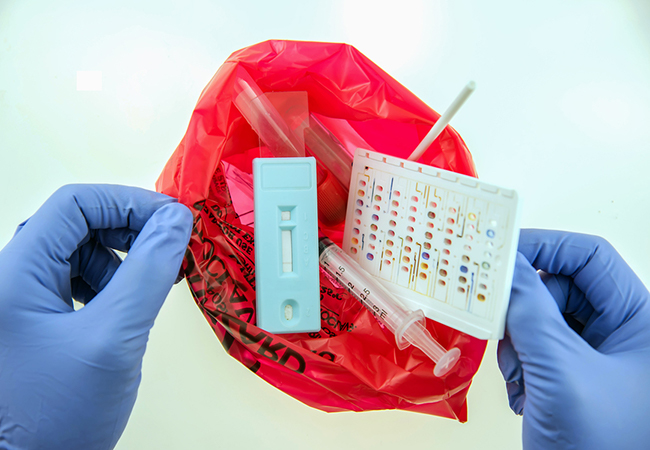Medical Waste Removal Excellence: Elevating Safety Requirements in Your Center
Stay Ahead of Laws: Professional Recommendations on Medical Waste Disposal
In a globe where the healthcare sector is constantly evolving, it is important for clinical facilities to remain ahead of policies when it concerns the proper disposal of medical waste. With strict guidelines and frequent regulative modifications, it can be testing to navigate the intricacies of this procedure. With skilled suggestions, facilities can guarantee compliance and reduce dangers connected with improper waste disposal. From understanding the different categories of medical waste to implementing the right collection and partition approaches, this conversation will offer important insights and workable ideas to aid centers stay ahead of regulations in the ever-changing landscape of clinical waste disposal.
Understanding Clinical Waste Categories
Understanding clinical waste categories is necessary for appropriate disposal and monitoring in health care centers. Medical waste refers to any kind of waste generated by medical care activities that might pose a danger to public health or the atmosphere. It is crucial to categorize clinical waste accurately to ensure its secure handling, treatment, disposal, and transportation.
There are a number of groups of medical waste that health care centers need to be acquainted with. One of the most usual categories consist of transmittable waste, pathological waste, sharps waste, pharmaceutical waste, and chemical waste. Each category has particular standards and regulations for its proper administration and disposal.
Pathological waste refers to human tissues, organs, or body components that require special handling and disposal. Drug waste makes up ended, unused, or contaminated drugs that need mindful handling and disposal.
Remaining Up-To-Date With Regulatory Adjustments
Remaining present with regulative changes is vital for health care facilities to make certain compliance and appropriate management of medical garbage disposal. medical waste removal services. With guidelines regularly developing, it is vital for healthcare facilities to remain updated to avoid fines, penalties, and potential harm to the setting and public health and wellness
To stay in advance of regulative changes, medical care facilities should develop a system for tracking and monitoring updates. This can be done by registering for regulative newsletters, participating in seminars and workshops, and proactively joining market associations. In addition, facilities must designate a team member or group accountable for staying notified and disseminating info to relevant stakeholders.
Routine interaction with regulative firms is likewise vital. Healthcare centers should develop relationships with regional, state, and government agencies to ensure they understand any adjustments in regulations that might influence their waste management methods. This can be done via regular meetings, participation in public remark durations, and proactive interaction with governing agencies.
Additionally, healthcare centers must consider partnering with waste monitoring companies that specialize in clinical garbage disposal (medical waste disposal services with WasteX). These firms are frequently fluent in the most recent policies and can offer guidance and support to ensure compliance
Implementing Appropriate Collection and Partition Techniques
To effectively handle clinical garbage disposal, healthcare facilities must develop correct collection and partition techniques in accordance with governing guidelines. Executing these techniques makes certain the safe handling and disposal of possibly unsafe materials, safeguards the environment, and minimizes the risk of injuries and infections to healthcare workers and the basic public.
Correct collection and partition approaches include making use of assigned containers and identifying systems. Health care centers must provide clearly identified containers for various types of medical waste, such as sharps, transmittable waste, pharmaceutical waste, and non-hazardous waste. These containers ought to be color-coded and plainly significant to stay clear of confusion and advertise very easy recognition.
Furthermore, medical care centers should train their personnel on the right treatments for accumulating and setting apart clinical waste. This includes educating them on the various sorts of waste, the proper containers to utilize, and the relevance of complying with guidelines and regulations. Regular training sessions and refresher course training courses ought to be performed to make certain that personnel continue to be up-to-date on best practices.
Additionally, healthcare centers need to establish a system for routine collection and disposal of clinical waste. This might entail partnering with licensed waste management firms that specialize in clinical waste disposal. These firms will certainly make sure that the gathered waste is transported and dealt with in compliance with governing demands.
Picking the Right Disposal Techniques

Incineration is just one of one of the most effective and common techniques for getting rid of particular sorts of clinical waste, such as pathological waste and sharps. It entails the regulated burning of waste at heats, reducing it to ash. Incineration can launch harmful contaminants right into the air and add to air contamination.

Chemical therapy includes the use of chemicals to sanitize and neutralize the waste. Microwave treatment makes use of microwave energy to heat and disinfect the waste.
Making Certain Conformity With Documents and Training
After meticulously considering the appropriate disposal methods for clinical waste, medical care centers have to make certain conformity with laws and lessen environmental effect by executing efficient documents and training treatments. This step is essential in preserving a secure and lasting setting for both health care employees and the general public.

Healthcare workers who manage clinical waste needs to obtain ideal training on waste partition, handling, and disposal procedures. By providing comprehensive training, healthcare facilities can empower their staff to make informed choices and decrease the threat of inappropriate waste disposal.
Verdict
To conclude, staying ahead of guidelines in medical waste disposal is important for health care facilities. medical waste removal. Understanding the various groups of clinical waste, staying updated with governing adjustments, carrying out appropriate collection and segregation approaches, picking the proper disposal methods, and guaranteeing compliance via paperwork and training are all important steps. By adhering to these guidelines, healthcare companies can successfully get rid of and manage of clinical waste in a risk-free and responsible fashion
From comprehending the different groups of medical waste to applying the ideal collection and segregation approaches, this discussion will certainly offer valuable understandings and workable ideas to help view centers remain ahead of regulations in the ever-changing landscape of medical waste disposal. - medical waste disposal services with WasteX
The most usual categories include contagious waste, pathological waste, sharps waste, pharmaceutical waste, and chemical waste. Medical care centers need to provide clearly labeled containers for different types of medical waste, such as check my site sharps, infectious waste, pharmaceutical waste, and non-hazardous waste. Health care facilities must develop a thorough system to record and track all aspects of medical waste disposal, including types of waste generated, amounts, and disposal approaches used. Healthcare employees that take care of clinical waste needs to get ideal training on waste segregation, managing, and disposal treatments.